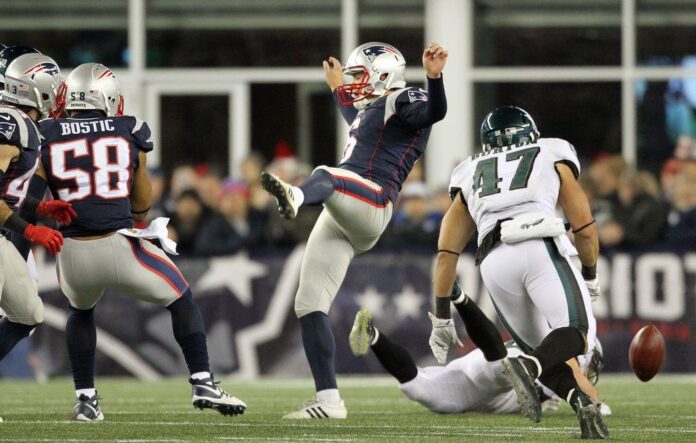Patriots blow three costly plays in very uncharacteristic fashion
There exists a significant distinction between unhelpful elements and the straightforward cause-and-effect dynamics in football.
This fundamental clarity is one of the numerous lessons acquired while playing under the guidance of Bill Belichick, the head coach of the New England Patriots.
Amidst the extensive and emotionally charged NFL regular season, comprising 16 distinct challenges, it becomes tempting to delve into relevant aspects that are not intricately tied to the issue.
The organization consistently emphasizes to its players the importance of focusing on practical problem-solving daily, dealing with the nuts and bolts rather than veering into tangential narratives.
In simpler terms, narratives may be suitable for bedtime, but in football, the emphasis is on addressing the core issues directly.
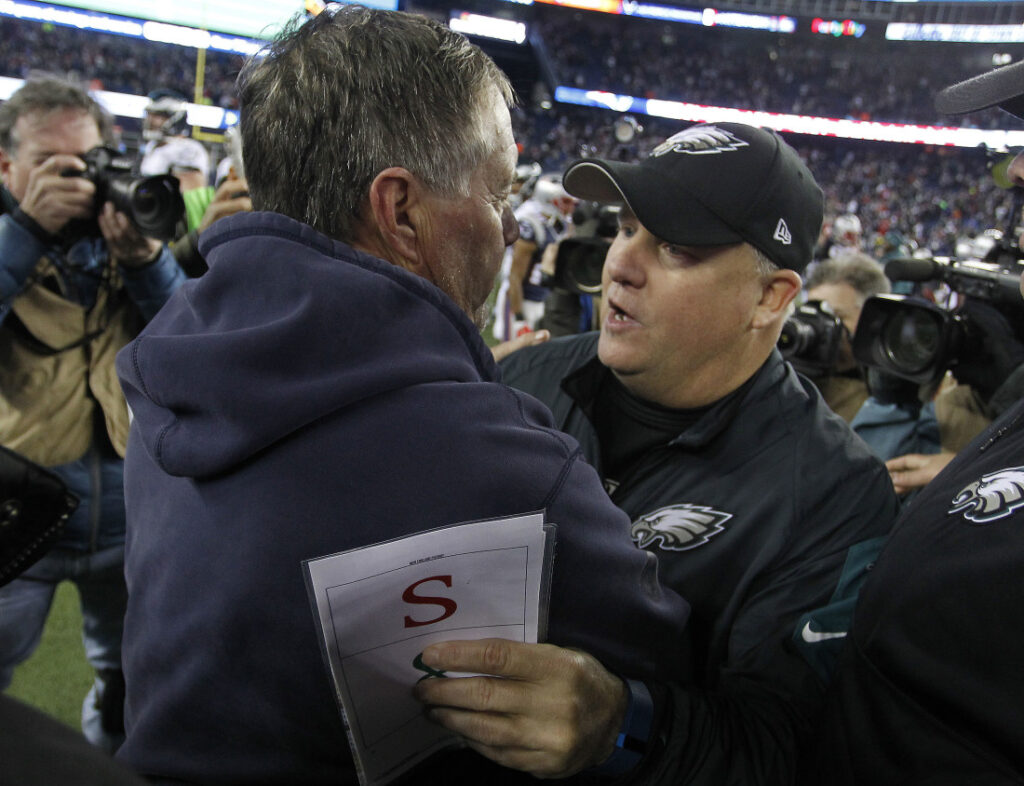
While it may be tempting to attribute yesterday’s game outcome to the absence of certain players, the reality is that three pivotal mistakes made by the Patriots on Sunday directly resulted in an insurmountable twenty-one-point lead for the opposing team.
Despite the inevitable criticism swirling around the team’s perceived issues, the absence of those three detrimental plays drastically alters the perspective.
This is a crucial point that Belichick will surely convey to his team certainly in the coming week.
In instances like these, Belichick typically stands before the team during Monday’s film review, dismissing narrative storylines and challenging players to identify any evidence of the mistakes made on the field.
There’s a strong internal focus on avoiding excuses unrelated to the specific job that went awry.
While variations of this message may have been heard before, Belichick will likely deliver a straightforward directive to the players: the team cannot succeed if they engage in specific actions, rendering everything else inconsequential.
In football, assigning blame to publicized areas may seem justified, but if those issues can’t be directly pinpointed in the game film, they are not the real problems that the team needs to address to secure a victory.
Looking back at historical data, the win probability for NFL teams experiencing a blocked punt typically lingers around 10% for that particular game.
If the blocked punt results in a touchdown return, this probability diminishes even further.
Now, imagine a scenario where the same team not only concedes a punt return touchdown but also allows a pick-six while maintaining an overall turnover differential of minus-2 for the game! In such a situation, the likelihood of success seems as improbable as riding a skateboard to the moon.
Understanding this harsh football reality is a critical factor that usually captures the Patriots’ attention when they seek to rectify issues.
In light of these challenges, here’s what they are likely focusing on today:
1. The [Gulp] Punt Block
Speaking from my experience as a former special teams player, let me tell you, these incidents still induce a queasy feeling in my stomach, regardless of whatever food might be there. When a punt block occurs, it creates one of the most potent, unspoken “oh, shit” moments on the sideline in football. It’s bad news, plain and simple.
You instinctively know that someone made a significant blunder. The realization hits hard, and you can almost feel the weight of their regret.
I vividly remember being on the field for two blocked punts during my career, and the unfortunate individuals involved looked as though they had seen a ghost on the sideline.
Their pallor lingered, almost like a specter, until well into the next game.
It was a very basic punt block look that all punt protection members would’ve seen and aced hundreds of times.
For a special teams player, it’s ingrained in your coaching that punt blocks rank among the worst possible scenarios—worse than a home invasion or a nuclear attack.
Securing a spot on the punt team is typically the most challenging for a young player because so much hinges on every punt play.
It’s the unit that demands utmost “reliability.” Any protection lapses can lead to game-altering consequences.
The golden rule: don’t let a punt get blocked. Ever.
In Sunday’s game, this rule held immense significance for the outcome. What’s particularly frustrating for the team is that it wasn’t a complex or perplexing play—it boiled down to a mental error.
The punt block formation was elementary, something all punt protection members would have encountered and perfected countless times.
During the game, I quickly shared a slide on Twitter to illustrate the apparent issue, and upon reviewing the tape the next day, it seemed to hold still true.
Barring any unusual protection calls unknown to me, the left guard failed to block the right opponent.
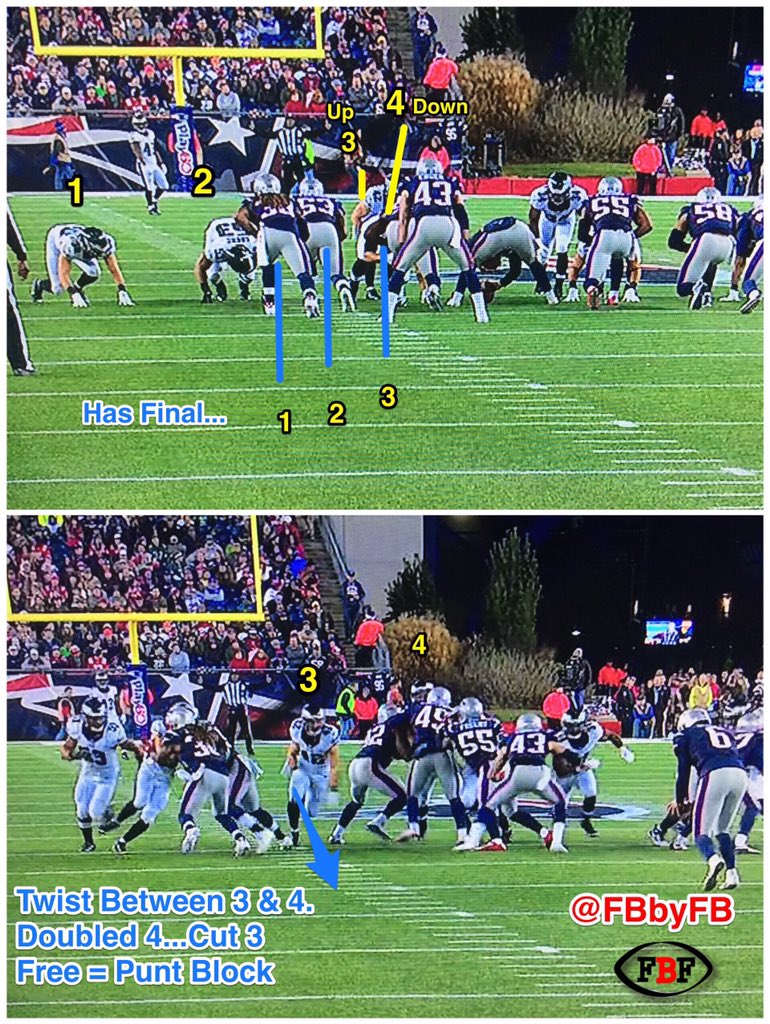
This doesn’t align with any narrative of injury woes, coaching decisions, or readiness to play—none of that.
Occasionally (and hopefully exceedingly rarely), someone just makes a colossal mistake.
While errors are part of the human experience, this learning moment remains etched in a player’s memory.
In certain football plays, mistakes are simply unacceptable, and punt protection falls into that category.
This blunder didn’t cascade into other issues. It didn’t signal a broader problem explainable within a larger context.
It was just what it was—an enormous, unfortunate, and costly error.
2. Punt Return Touchdown
I am acutely aware that special teams players often go unrecognized, not receiving the attention they truly deserve.
Thus, it’s disheartening for me to draw attention to another pivotal, game-altering play that falls on the shoulders of the special teams unit.
Surrendering a punt block is already a significant setback.
However, conceding a punt return touchdown shortly after experiencing a blocked punt? That’s akin to a crotch kick delivered right after a vasectomy.
In contrast to the punt block, credit is due to the Eagles for this one.
A hallmark of exceptional punt return blocking is when a returner doesn’t need to execute dramatic cuts or break a tackle until well into the return.
Eagles PR Darren Sproles covered 38 yards in his return before showcasing anything particularly exceptional (refer to the details below).
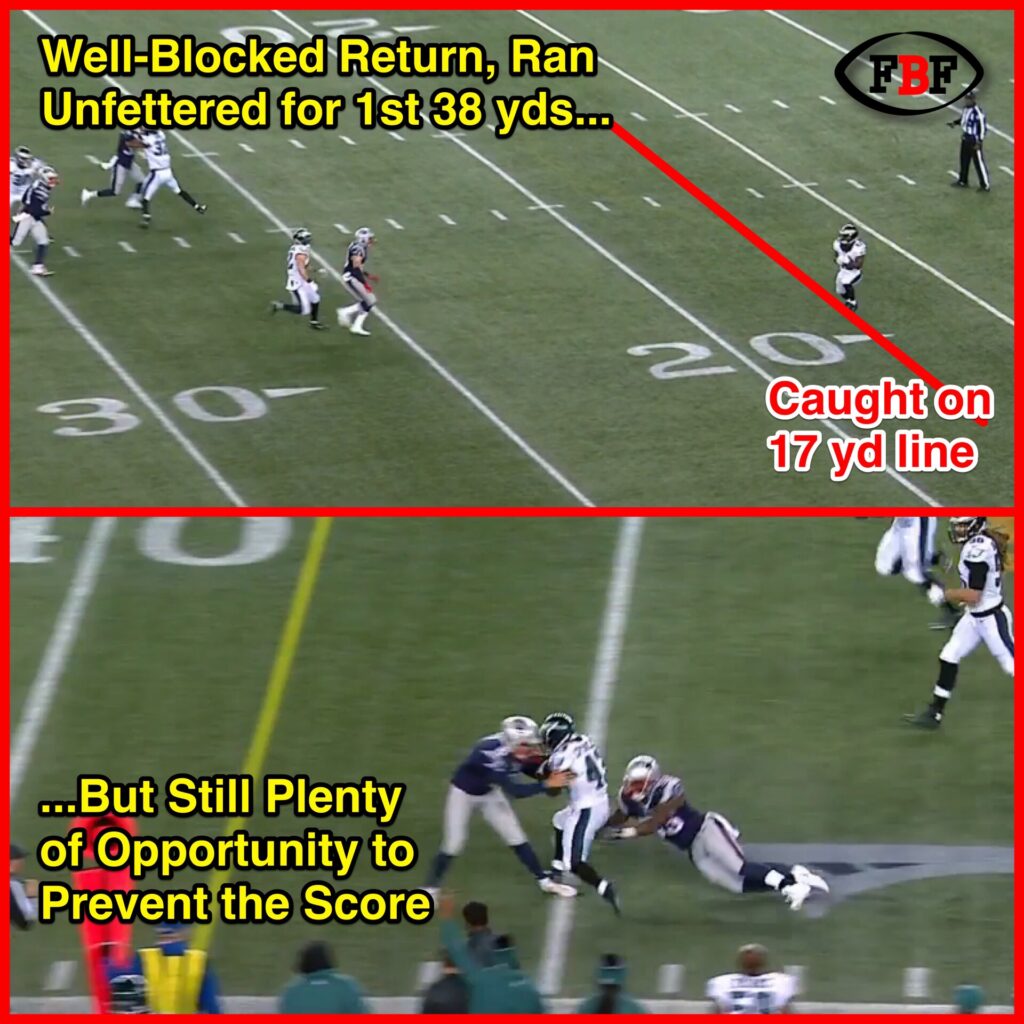
Access to the coaching tape of the game won’t be available until Tuesday, limiting our view of the total coverage breakdown.
Nevertheless, based on the broadcast copy, it’s evident that the return should not have advanced beyond the Patriots’ 40-yard line, given the presence of two Patriots defenders ready to limit it to a modest gain (depicted in the bottom half above).
To distill this into hot-take currency, the 2-on-1 missed tackle resulted in twice as many yards in field position as all the fuss over the Nate Ebner drop kick in the first half.
Notably, this more impactful mistake directly contributed points to the opposing team.
Credit must be given to the Eagles’ return unit, along with Sproles, for turning what should have been a 40-yard shorter return into a significant play.
These two substantial special teams blunders translate into a tangible, non-speculative 14 points on the scoreboard—an uncharacteristic lapse for a special teams crew that is typically a strength for the Patriots.
3. 99-Yard Pick-Six
Tom Brady committed a pivotal mistake deep in Eagles territory by throwing an interception into double coverage, leading to a 99-yard touchdown in the opposite direction.
While we’ve been referencing the ’21 points worth of errors’ in this column, this specific error amounts to a significant 10 or 14-point swing in itself.
Not only did the Eagles secure their touchdown, but the Patriots were also deprived of their nearly certain points.
In the aftermath, Brady, true to his team-oriented nature, shouldered the blame in the post-game analysis, citing “quarterbacking errors” as a significant factor in the game.
Tom, the player who understands the team’s thinking best, comprehends the genuine cause and effect of winning.
It’s commendable that he promptly acknowledges this, and it’s challenging to dispute his assessment.
For fans seeking improved performance from the team, hearing this truthful explanation is far more preferable than any alternative excuse for what transpired in the game.
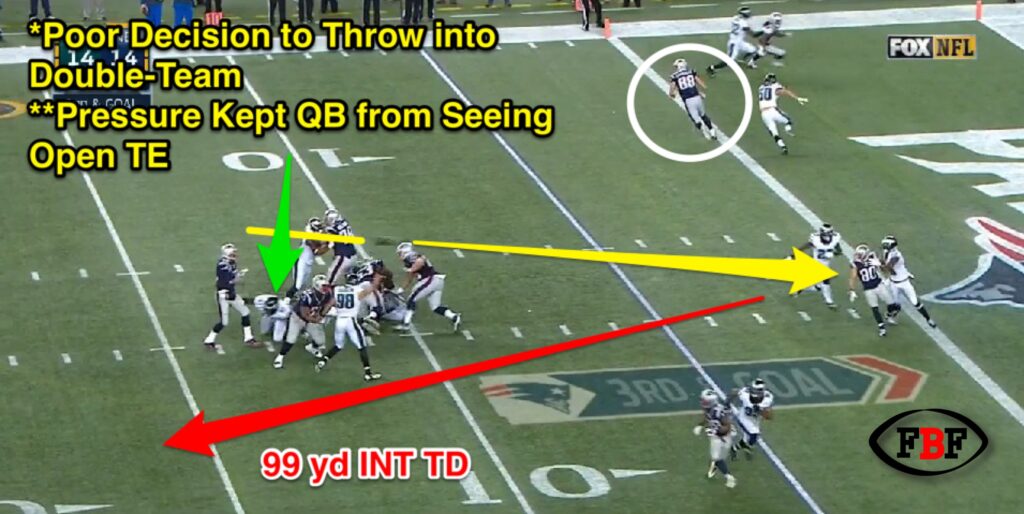
Sending the ball into double coverage was an unnecessary choice; other singular options were available.
Opting for a throw into the stands to preserve three points and secure the lead would have been a more characteristic Brady-like decision.
It’s essential to highlight that the protection at left guard (LG) was lacking on that play, and Brady felt the pressure that impeded him from having the time to explore his other options, including the open tight end Scott Chandler.
However, the optimal decision, as he often wisely makes, would have been to throw the ball away.
The significant revelation here is the unprecedented number of mistakes in Sunday’s surprising loss, which didn’t merely contribute to other issues or missed opportunities but directly resulted in 21 points on the scoreboard due to specific errors.
Does this fact resolve all concerns in Patriots Nation? Certainly not. However, it emphasizes that deciding some other struggles to a lesser extent won’t have as direct an impact on improved outcomes as simply avoiding the repetition of these easily preventable mistakes.
Attempting to force a narrative into any of these three fundamental, clear-cut personal failures is the kind of thing done by losing teams.
1 Patriot Place operates on logic and results, showing little patience for excuses and lacking a sensible connection to the outcome.
The Patriots faced significant challenges on Sunday—challenges that are entirely fixable and unrelated to anything beyond the fundamental mistakes themselves.

